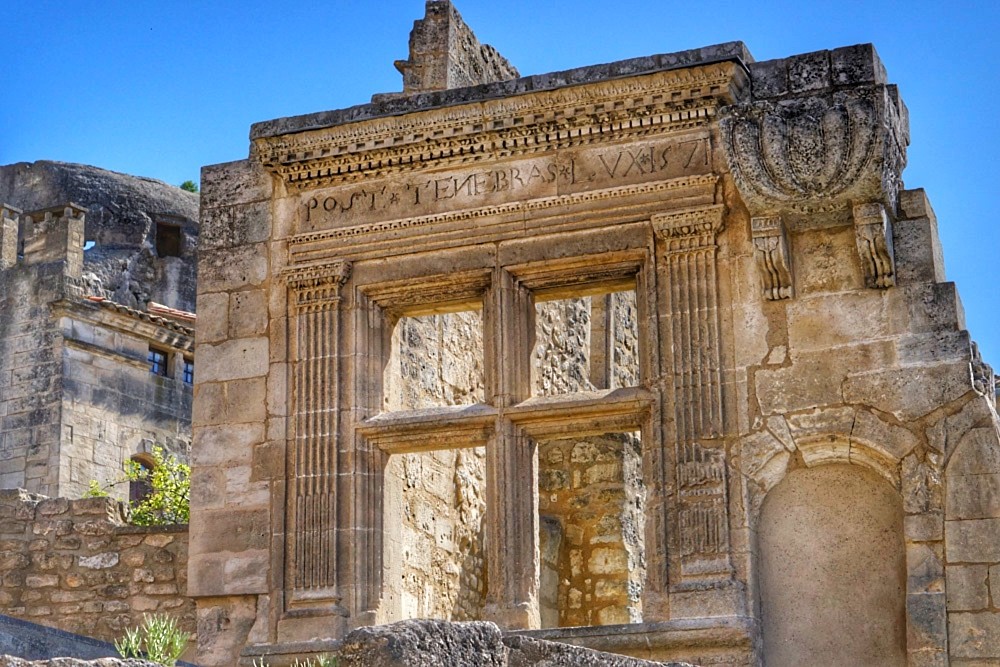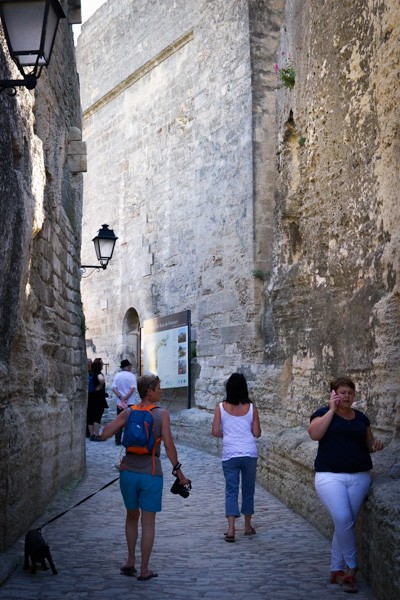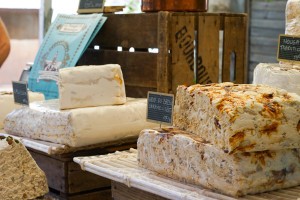Fond Memories of Les Baux-de-Provence, South France

Click photo for larger view. ©2015, David A. Porter
I shot this photograph in the town of Les Baux, officially Les Baux-de-Provence, in the south of France while sailing the Rhone River with Viking River Cruises on their 8-Day Portraits of Southern France cruise.
Roughly 15 miles northeast of Arles, France, this tiny village with a population of 22 people lies atop a rocky outcrop in the Alpilles mountains. Les Baux owes its name to the aluminum ore bauxite which was discovered there in the early 19th century.

Photo courtesy of Wikipedia Commons.
 This beautiful village has traces of habitation dating back as far as 6000 BC, and former residents claimed ancestry with the Magi King Balthazar and even placed the Star of Bethlehem on their coat of arms. During the Middle Ages Les Baux was the seat of a powerful feudal lordship that controlled vast regions around the village.
This beautiful village has traces of habitation dating back as far as 6000 BC, and former residents claimed ancestry with the Magi King Balthazar and even placed the Star of Bethlehem on their coat of arms. During the Middle Ages Les Baux was the seat of a powerful feudal lordship that controlled vast regions around the village.
Further, according to Wikipedia, “the lords of Baux were deposed in the 12th century. However, the great castle at Les Baux became renowned for its court, famed for a high level of ornateness, culture and chivalry. The domain was finally extinguished in the 15th century with the death of the last princess of Baux, Alice of Baux.
Les Baux was later joined, along with Provence, to the French crown under the governance of the Manville family. It became a center for Protestantism and its unsuccessful revolt against the crown led Cardinal Richelieu in 1632 to order that the castle and its walls should be demolished.
The town was granted in 1642 to the Grimaldi family, rulers of Monaco, as a French marquisiate. To this day the title of Marquis des Baux remains with the Grimaldis, although administratively the town is entirely French. The title is traditionally given to the heir to the throne of Monaco. Princess Caroline of Monaco uses the style Marquise des Baux, but, being a French title it can only pass through a male line under Salic law. It lapsed on the death of her grandfather Prince Louis II, the last male in a direct line”.
Post tenebras lux
In my photograph at the top of this article, one of the demolished village buildings has the inscription Post tenebras lux which translates from Latin as “after darkness, light”. As mentioned in the Wikipedia article above, Les Baux was once a stronghold for the new protestants in the early days of Protestantism, but the small band scattered in the early 17th century after the local Catholic cardinal ordered the destruction of the castle and its walls.
 Today, Les Baux is predominantly a tourist town where busloads of folks walk the narrow streets to enjoy scenic views, a plethora of boutique shops (like the cheese shop in my photo), and the picturesque ruins of many of its buildings, and in particular the castle.
Today, Les Baux is predominantly a tourist town where busloads of folks walk the narrow streets to enjoy scenic views, a plethora of boutique shops (like the cheese shop in my photo), and the picturesque ruins of many of its buildings, and in particular the castle.
If you find yourself in the south of France, we would highly recommend a half-day visit to the little village of Les Baux. Grab some lunch in one of the tiny restaurants, stroll the cobblestone streets, and enjoy a little shopping.
If you like, there is even a small hotel in the tiny village which is certain to give you an extraordinary experience after the busloads of tourists leave.
We have grown to love the south of France, and the tiny village of Les Baux is a real standout in our memories. We highly recommend it! 😀
If you enjoyed this article, sign up for our monthly newsletter to keep abreast of our best travel tips, on-location reviews, exclusive travel offers, group travel events, and much more.

 The Roaming Boomers
The Roaming Boomers



